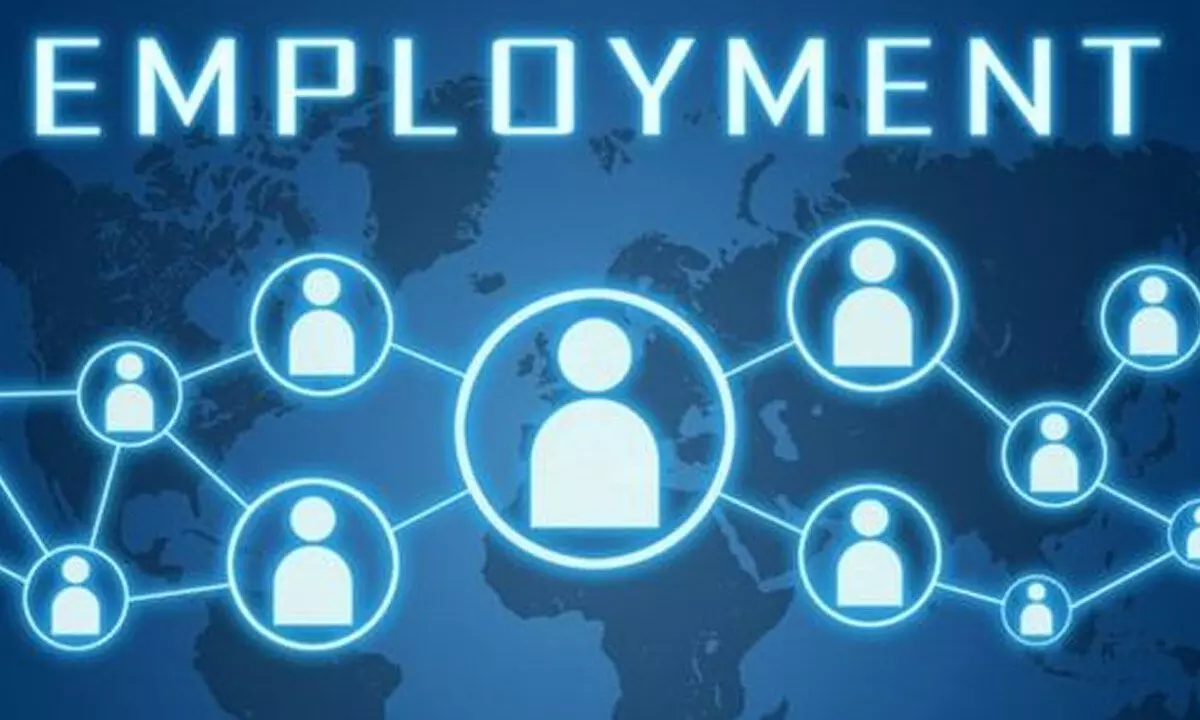Bridging education gap for quality employment

In today’s rapidly evolving world, quality employment remains a distant dream for many, not because of a lack of ambition or potential, but due to an inaccessibility to quality education
In today’s rapidly evolving world, quality employment remains a distant dream for many, not because of a lack of ambition or potential, but due to an inaccessibility to quality education. The disparity in education is one of the most significant barriers that prevent children from disadvantaged backgrounds from accessing opportunities that could lead to a better future. The consequences of this educational divide are wide-ranging, influencing not only individuals caught in cycles of limited opportunity but also the broader society, which misses the untapped potential of millions.
The relationship between education and employment opportunities is undeniable. Those with access to high-quality education are better positioned to secure well-paying jobs, contribute meaningfully to their communities, and drive economic growth. Conversely, those without such access often find themselves trapped in a cycle of limited opportunities and unfulfilled potential. To break this cycle, we must address the root cause by not only encouraging education but also providing tangible support and motivation for children to pursue learning.
The Restriction of Quality Employment
Quality employment opportunities are often restricted to those who have access to quality education. This creates a vicious cycle where children from marginalized communities are unable to break free from poverty because they lack the educational foundation necessary to secure well-paying jobs. The disparity in educational access is influenced by various factors, including resources, the learning environment, and the quality of teaching. While some students receive the education that prepares them for life, not just tests, others struggle to cope with the demands of the curriculum due to inadequate preparation and support.
Encouraging Education as a Pathway to Change
Addressing the disparity in education requires a concerted effort to provide children with the necessary impetus to pursue their educational goals. This begins with early education, which plays a crucial role in shaping the leaders of tomorrow. By investing in quality early education, we can create a more equitable society where every child has the opportunity to reach its full potential. This is not just a moral imperative but a practical one, as closing the education gap today will lead to a more skilled and capable workforce in the future.
The Role of Businesses in Closing the Education Gap
Businesses have a critical role to play in bridging the education gap. By investing in scholarships, mentorship programs, and partnerships with educational institutions, companies can directly contribute to closing the disparity in educational access. These initiatives help students from underprivileged backgrounds gain the skills and knowledge needed to compete in the job market. Moreover, by aligning their workforce needs with the curricula of educational institutions, businesses ensure that students are equipped with relevant skills, making the transition from classroom to workplace smoother and seamless.
Internships and apprenticeships offered by businesses provide invaluable practical experience, allowing students to apply their theoretical knowledge in real-world settings. These programs not only enhance students’ employability but also create a pipeline of future employees who are already familiar with the company’s operations and culture. This collaboration between businesses and educational institutions is essential for ensuring that the next generation of workers is prepared to meet the demands of an ever-changing job market.
The Importance of Supportive Government Policies
Government policies play a vital role in providing equal access to quality education. Supportive policies that promote equitable, inclusive, and quality education are essential for eliminating barriers that prevent students from marginalized communities from succeeding. Public-private partnerships can accelerate progress in this area, with governments providing the necessary infrastructure and businesses offering financial support, mentorship, and practical training opportunities.
Such collaborations can help create a more level playing field where every child, regardless of its background, has the chance to succeed. This is not just about providing access to education but ensuring that the education provided is of high quality and aligned with the needs of the modern workforce.
Investing in the Future Workforce
The disparity in education is not just an issue for the individuals affected; it is a challenge for society as a whole. By investing in education, businesses and governments are investing in the future workforce. This investment is crucial for creating a society where every individual has the opportunity to succeed, thereby driving economic growth and social progress.
Bridging the education gap is not just a matter of equity; it is a necessity for building a better future. By working together, businesses, governments, and educational institutions can ensure that every child has access to the quality education they deserve. This will not only help close the disparity gap but also create a more prosperous and equitable society for all.
As we work towards bridging the disparity gap, it is important to remember that every child reached is a step towards a more equitable future. By combining the efforts of businesses, educational institutions, and governments, we can create a world where quality education - and the opportunities it brings - is accessible to all. This is not just an investment in individual futures but in the collective prosperity and harmony of our global society.
(The author is Director at RR Kabel)

